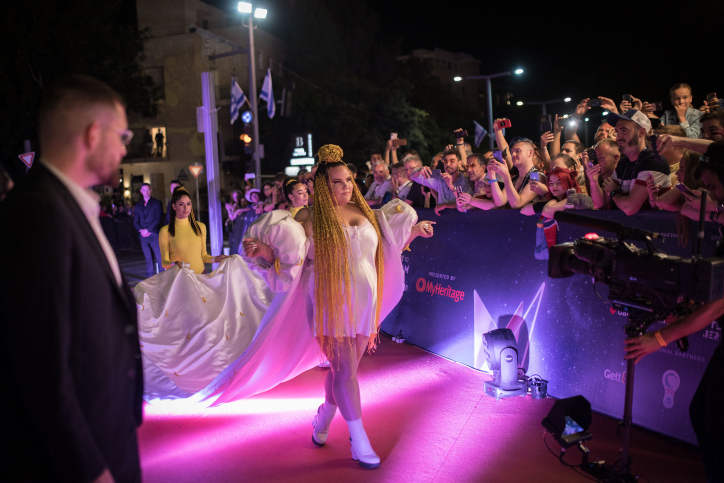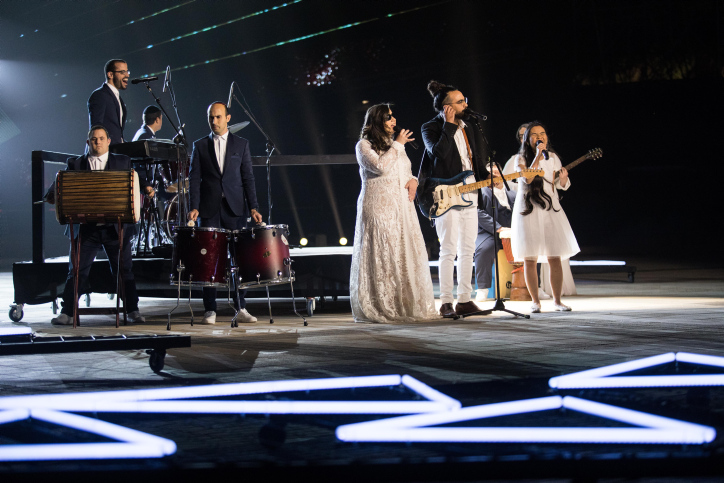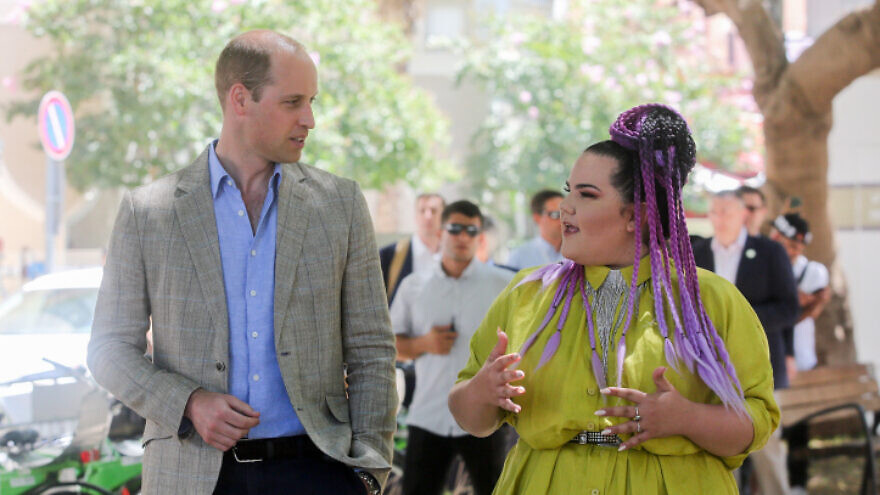As the Shalva Band and 2018 Eurovision Song Contest winner Netta Barzilai redefine what it means to be beautiful and successful, perhaps they are, at the same time, redefining what it means to be a “traditional” Israeli ambassador.
Barzilai’s Eurovision-winning song “Toy” aimed to empower women, victims of sexual harassment and those who may not adhere to traditional beauty standards. Told in the early stages of her career that she wasn’t “sexy or beautiful” like traditional superstars, Barzilai has delivered a powerful confirmation of the importance of staying true to oneself.
“I believe in empowering individualism,” she told JNS.
“I speak as honestly as I can and as freely as I can about how I see the world,” said Barzilai. “It can be funny, silly even and unexpected. It can be sad and emotional, about matters of the-heart, and it can be in empowering anthems about body image or girl power.”

“I think we’re the warmest and kindest people,” she said. “Also, we have very strong family values, mutual respect and desire to lift each other up. We all call each other achi and achoti, ‘brother’ and ‘sister.’”
Israel, she said, was a country of survivors, with a unique character.
“We’re a country of survivors because we’re constantly fighting for our lives and country. Because of that, our character is unique; we’re resourceful and focus on what matters: family, relationships and our strength. We laugh and sing to keep healthy, and take no bull****. We’re happy at every opportunity we can be. And we value human life more than anyone can imagine. These are the values I live by.”
Many Israelis hailed her Eurovision win as a “national vindication and diplomatic triumph,” according to The New York Times.
At this year’s Eurovision, which took place in Tel Aviv, the Shalva Band delivered a moving and inspiring performance in the semi-finals. Their message to never stop dreaming won the hearts of viewers around the world. (The band dropped out of the song contest because of compulsory rehearsals on Shabbat for the Saturday-night finals.)
Comprised of eight musicians, the Shalva Band was formed at the SHALVA organization in Israel, which supports and empowers individuals with disabilities and their families.

Dina Smeta, one of the band’s lead singers, who is blind, told JNS of her pride in becoming an inspiration for children with disabilities.
“The message I want to transmit is it doesn’t matter who or what you are; we are all born with certain abilities, and it doesn’t quite matter if you have a disability. We need to believe in ourselves,” she said.
Smeta recalled meeting a blind 8-year-old girl at a klezmer festival in Tzfat two months ago that told her that she wanted to be just like her when she grew up.
Shalva band director Shai Ben-Shushan also spoke with pride of leading a change in the way disabled people are perceived in society, and of bringing people together.
“A mother got in touch with us and said that her son has Down syndrome, and after his classmates saw the Eurovision performance, he’s become the most popular kid in his grade,” he told JNS. “Shalva is changing the way people are perceived; we get many comments like these from around the world and throughout Europe.”
“The main message is that anyone can, with enough belief and willpower, do whatever they wish,” he continued. “One of the members of the Shalva Band has Down syndrome and it took him two years to ‘own’ a certain beat, but he persevered and I met with him every day until he got it. Now he keeps the beat and is a terrific drummer. So the message is not to give up, and to belief in [yourself]. With hard work and faith, you can [achieve anything] you want,” he said.
Having the chutzpah to be oneself unapologetically is empowering, said Ben-Shushan.
‘The language of the entire world’
Six months ago, said Ben-Shushan, the Shalva Band visited a Broadway show, and someone in the audience recognized them.
“He told us that he was an Israeli expat who had married a non-Jewish woman and whose relationship to Israel had practically vanished, but that when he saw [one of our performances] it reminded him of home. So after years of not practicing Judaism, he taught his children what the Kiddush was. We were overwhelmed when we heard that,” said Ben-Shushan.
During a recent trip to Israel, American pop singer Demi Lovato visited the Shalva center in Jerusalem and played with the band for two hours. According to Ben-Shushan, she had hoped to continue to work with them after her trip, but was prevented from doing so by the BDS movement.
“She came and saw a show, and loved Shalva, raving about them,” Ben-Shushan told JNS. “But BDS tore her into pieces, and now we are unable to do something with her.”
Even so, he maintained that music has the power to bring people together as “the language of the entire world, no matter where you come from.”
Barzilai and the Shalva Band will each be performing for more than 3,500 attendees at this year’s Israeli-American Council conference, which is scheduled to take place in South Florida from Dec. 5-8.
Impacting the Jewish Diaspora, Ben-Shushan said, is important to the band, so “every two or three months, we reach [out to] a Jewish community, which empowers the bond,” he said.
Barzilai, too, expressed her hope to build bridges between the United States and Israel through her music.
“The stronger we can build the bridge and our nation’s allies around the world, the stronger we all are together. Together, Israel and America can bring light upon the world with our innovation, and desire for progress. When you light someone else’s candle, the world becomes a much brighter place,” she said.
“The beauty of both our countries is that we share the same empowering ideals of prosperity, progress and freedom. I believe with music we can build bridges, cross borders, and bring light into the world, together.”


























